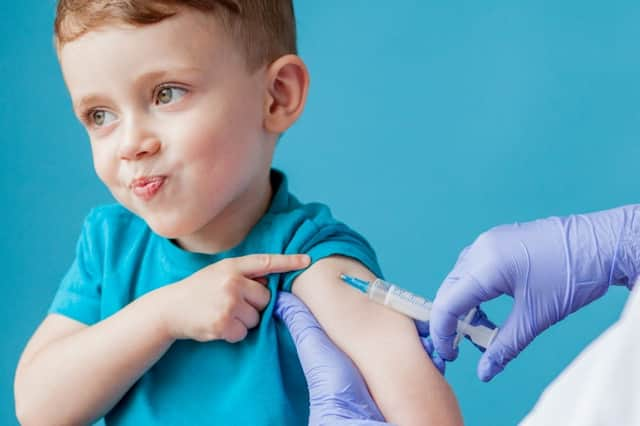These are the groups of people who can’t have the Pfizer Covid vaccine


The Medicines and Healthcare products Regulatory Agency (MHRA) gave out the advice after two NHS workers had an allergic reaction to the jab.
Advertisement
Advertisement
Both people, who have recovered, have a history of serious allergies and need to carry adrenaline pens around with them.
So, who should not be vaccinated? There are currently three types of people who should avoid the jab - here’s what you should know.
Who can’t be vaccinated?
People with allergies
After the NHS workers had an allergic reaction, the MHRA said their temporary warning applied to anyone who has had reactions to medicines, food or vaccines in the past.
That includes anyone that has experienced a reaction so severe that they have been prescribed an EpiPen adrenaline injection.
Advertisement
Advertisement
The two workers had an anaphylactoid reaction, which often involves a skin rash, breathlessness and a drop in blood pressure, and is different to anaphylaxis which can be fatal.
The specific reason for the NHS staff members’ allergic reaction remains unclear.
People with all severe allergies have been told not to be immunised because those who are allergic to one thing are often prone to react to new allergens.
Healthcare professionals have also been told that the vaccine should not be given to people with any allergy to the vaccine’s ingredients.
Advertisement
Advertisement
However, the ingredients don't include anything that commonly provokes allergic reactions from vaccines, like eggs or gelatin.
Reactions to vaccines are not uncommon, and can happen with others like the annual flu jab.
Pregnant women
Pregnant women have also been told that they can’t get a vaccine, because there is currently no data about any potential risks.
The Joint Committee on Vaccination and Immunisation (JCVI) recommended that pregnant women should not opt to receive the jab.
Advertisement
Advertisement
It said: "There are no data as yet on the safety of Covid-19 vaccines in pregnancy, either from human or animal studies.
"Given the lack of evidence, JCVI favours a precautionary approach, and does not currently advise Covid-19 vaccination in pregnancy.
"Women should be advised not to come forward for vaccination if they may be pregnant or are planning a pregnancy within three months of the first dose."
Women who are breast-feeding should also ask for advice from a doctor or pharmacist before being injected.
Advertisement
Advertisement
Deputy chief medical officer for England Professor Jonathan Van-Tam has said none of the vaccine trials deliberately included pregnant women due to the risks, which is why there is a lack of data on the effects on these people.
However the JCVI has said it will review data on using the vaccine in pregnancy as soon as it becomes available.
Vaccines are usually not administered to pregnant women because of the need to avoid risk to the mother and baby.
Children under 16
Children under the age of 16 are the final group who will not be given the new vaccine.
Advertisement
Advertisement
This is because they usually only experience an asymptomatic or mild case of the virus.
There is also a lack of evidence as to how the immunisation affects children since the vaccine was tested on adults and pensioners, so it can’t be proved to be safe.
But it will be made available for children at “very high risk of exposure and serious outcomes”, such as those with severe neuro-disabilities.
The JCVI said further research is being carried out to understand the safety of Covid-19 vaccines in children.
Advertisement
Advertisement
It added: "Following infection, almost all children will have asymptomatic infection or mild disease.
"There are very limited data on vaccination in adolescents, with no data on vaccination in younger children, at this time.
"The Committee advises that only those children at very high risk of exposure and serious outcomes, such as older children with severe neuro-disabilities that require residential care, should be offered vaccination.
"Clinicians should discuss the risks and benefits of vaccination with a person with parental responsibility, who should be told about the paucity of safety data for the vaccine in children aged over 16 years."